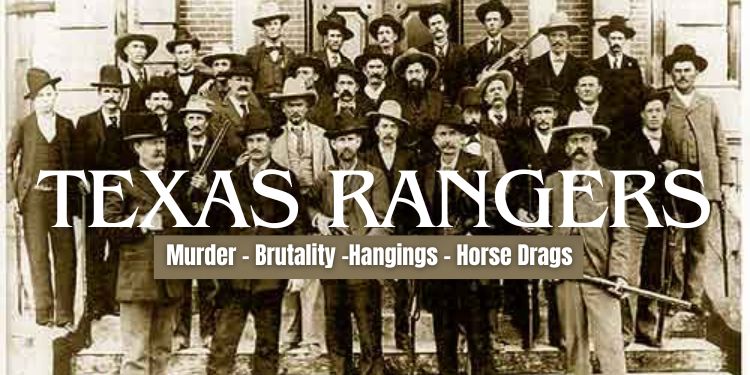Thousands of Black women who have sued L’Oréal, Revlon and other companies allege hair products are responsible for their uterine cancer and infertility.
From the time she got married in September 2021, Kenya Appling had looked forward to having a child.
That dream was crushed four months after her wedding when Appling, 42, was diagnosed with uterine cancer and, at the advice of her doctor, underwent a hysterectomy, as well as chemotherapy and radiation.
“It was really devastating. I could not come to terms with it for a while,” she said of the diagnosis. “Immediately after surgery, I kind of locked myself off. I didn’t want to talk to anyone. I did not want to be around anyone, even though I knew that I needed help, because I couldn’t do a lot of things on my own. It was really heartbreaking.”
Appling, who says her doctor told her she did not have any established risk factors before her diagnosis, believes the cancer was caused by harmful ingredients in the chemical hair straighteners she had used monthly since childhood.
She is among thousands of Black women who have sued L’Oréal, Revlon and other makers of chemical hair straighteners, alleging the companies’ products caused them irreparable harm and serious injury.
Chief among those injuries for many of them is the devastating loss of the ability to have children.
“I still have moments to this day where I wonder what it would have been like just to be pregnant, just to feel the kick of a baby,” Appling said. “And I’ll forever have those moments for the rest of my life.”
Studies associate relaxers with higher cancer risk
Concern about the health risks associated with chemical hair straighteners has grown over the last year since the National Institutes of Health released a study that found that women who used them frequently were more than twice as likely to develop uterine cancer as those who did not. Chemicals in the hair products, like parabens and phthalates, disrupt the hormone-regulating endocrine system, researchers said.
A similar study released this month by researchers at Boston University found that postmenopausal Black women who reported long-term use of chemical hair relaxers were at increased risk of uterine cancer.
The studies, however, do not go so far as to say the products cause cancer.
Most treatments for womb cancer result in infertility, and Black women are more likely to undergo hysterectomies.
L’Oréal did not reply to repeated requests for comment. Last year, it said the lawsuits had no legal merit. A spokesperson for Revlon declined to comment. Both companies have filed motions to dismiss the lawsuits.
“What I think we’re dealing with here is a product that is a conduit for severe reproductive harm that manifests itself in a number of different ways,” said Danielle Ward Mason, an attorney who is representing thousands of Black women in cases against the beauty companies. “But it’s all equally tragic. And it’s all emotionally taxing and devastating. And it’s all physically debilitating.”
More than 90% of her clients have had hysterectomies, while the rest have had one or more myomectomy procedures to remove uterine tumors or fibroids, said Mason, a managing partner at Bullock Ward Mason.
‘Nothing can prepare you for this’
The increased attention on the possible dangers of hair-straightening products is little salve for women like Bree-Shawna Watts, 32, who had a hysterectomy last year after she was diagnosed with uterine cancer.
Watts underwent surgery in April 2022 to remove what her doctors believed was a fibroid in her uterus that was causing her to have very heavy periods and serious pelvic pain. Her doctor, she said, hoped to save her uterus during the procedure so she would still be able to have children. But she recalled waking up after her surgery and asking a nurse whether everything had gone as planned.
“And she just looked down, and she looked so sad,” Watts said, her voice breaking as she cried. “The way she looked at me was like, ‘You have no idea what is about to happen.’”
The nurse told her that her uterus could not be saved. The most crushing news came later, when she learned from her doctor that she had uterine sarcoma, a type of cancer.
“And she said, ‘Because it had spread, I had to take everything except the ovary and the fallopian tube,’” Watts said. “So she took my uterus, my ovary, my fallopian, my perimetrium.“
Her doctor assured her that they would fight the cancer that had also been found in the wall of her abdomen and suggested she quickly retrieve eggs before her remaining ovary was removed.
Watts said she opted not to harvest her eggs because it required her to inject the hormone estrogen into her body and she did not want to risk worsening her diagnosis — a decision she now regrets.
She underwent 25 rounds of radiation and also started hormone therapy, which she said she will have to continue for 10 years.
After her operations and 25 rounds of radiation, Watts said, she “plummeted straight into menopause at 31,” an ordeal she described as hellish.
“I thought I was so strong,” she said, “but … actually, nothing can prepare you for this.”
Rising cases of uterine cancer
Dr. Onyinye D. Balogun, a radiation oncologist at NewYork-Presbyterian Brooklyn Methodist Hospital and an assistant professor of radiation oncology at Weill Cornell Medicine, said that uterine cancer will become the third most common type among women by 2040 and that Black women die of uterine cancer at twice the rate white women do.
“It’s one of the few cancers where incidence and mortality are rising,” she said. “We’re going backwards when it comes to uterine cancer.”
Researchers have produced new evidence this year linking chemical hair straighteners to those harmful effects, including Boston University’s Black Women’s Health Study, which surveyed 45,000 women and followed them for up to 22 years.
“In order to identify whether this is a cause, we would probably need to do a randomized clinical trial,” said Kimberly Bertrand, an epidemiologist at Boston University’s Slone Epidemiology Center and corresponding author of the study. “But again, given what we know about the potential toxicity of these products, not just with cancer, but with other reproductive health outcomes, it wouldn’t be ethical to randomize people to use these products.”
Bertrand said she believes the products need stricter regulation or replacement with safer alternatives. Product labels, she said, could also be more explicit about the use of potentially harmful ingredients. Except for color additives, cosmetic products and ingredients are not required to have approval from the Food and Drug Administration before they are sold to the public. And until last year, when Congress passed a bill giving it new powers, the FDA had limited regulatory authority over the cosmetics industry, which includes companies that make hair products.
Balogun would also like the product manufacturers to be pushed to respond.
“If it warrants things like warning labels, especially for Black women who are disproportionately affected, it’s time for us to do those sorts of things that might make someone say, ‘Hey, let me take a second and think about this,’” she said.
‘Completely devastating’
Watts said she is angry for herself and the many other Black women she believes have been harmed by chemical hair straighteners.
“I live in a Black community,” said Watts, an Atlanta resident. “I grew up in a Black community, and the messaging, they do a really good job at telling us that this is how our hair needs to be.”
She remembers getting her hair relaxed — a word Black women use to describe the process of chemical hair straightening — at age 5, the night before she started kindergarten. She likened it to a rite of passage among Black women, motivated by pressure to appear “presentable” by changing the texture of their natural hair. She relaxed her hair every couple of months until the pandemic started and working from home brought less societal pressure to conform.
She hopes that because of her suit, the products will no longer be sold.
Chenetra Buchannon, who is suing L’Oréal, also wants the makers to be held accountable after her dream of having three children was dashed.
Buchannon, 46, of Auburn, Alabama, believes long-term use of chemical hair straighteners caused the fibroids and infertility she struggled with for years before she was diagnosed with ovarian cancer two years ago.
She said the diagnosis, which required she undergo a hysterectormy, was “completely heartbreaking.”
She also hopes that by speaking out she brings awareness to the plight of those with reproductive and gynecologic problems.
“I just want people to show more compassion when it comes to these types of issues,” said Buchannon, a psychologist. “Just because the entire thing is completely devastating.”
She said she also hopes to highlight the physical trauma of cancer treatment, including hysterectomy.
“There’s so much emotional and cognitive damage that also comes with a level of treatment that we have to have in order to fight cancer,” she said. “Cancer is very harsh, very dangerous, and the treatment has to be equally as harsh in order to get rid of it, which causes so much damage to our bodies physically and psychologically.”
By: Janelle Griffith




















